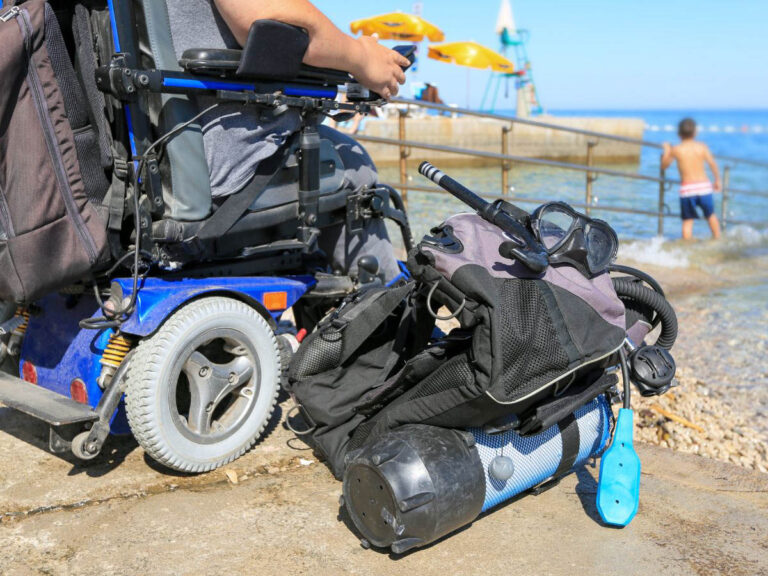Your disability probably doesn’t restrict you from exploring the underwater world around you. Here is some helpful advice for scuba diving with a disability.
Scuba diving opens up a world of exploration, excitement, and serenity beneath the waves. If you have a disability, you might worry you can’t enjoy the activity. However, that’s not the case. Though scuba diving with a disability certainly requires some extra planning, it’s perfectly achievable and backed by a wealth of resources and support. Here’s some helpful advice to get started.
Get Medical Clearance
The first and most important step is to get medical clearance. Your doctor will be able to accurately assess if the activity is safe for you, and they will provide tailored medical advice to ensure your well-being during the dives. Always follow the advice of your doctor to ensure a safe diving experience.
Seek Tailored Resources
Adaptive scuba diving has a huge community behind it. Here are some organizations dedicated to supporting the scuba dreams of people with all different sorts of disabilities:
- International Association for Handicapped Divers
- Disabled Divers International
- Handicapped Scuba Association
Ease Into the Sport With Lots of Pool Training
When you’re ready to get in the water, start small. Begin by participating in pool training sessions through a disabled divers certification—yes, those exist—that focuses on the adaptive skills you’ll need while diving.
During these sessions, familiarize yourself with the equipment and practice buoyancy control. This allows you to develop confidence in your abilities and understand how your body responds when submerged. The more comfortable you are in the water, the more fun you’ll have and the safer you’ll be.
Figure Out What Accommodations You Need in the Water
Depending on your disability, you will require unique accommodations during your dives. For instance, you might need a specialized wheelchair, custom fins, buoyancy compensators, webbed gloves, or other adaptive gear.
Set Up Your Accommodations on Land
You’ll spend a good portion of the activity on land as you travel to the dive spot, gear up, get in the water, and come back out. Therefore, equally important as your underwater accommodations are the ones you have on land.
First, if you’re not flying, you’ll need a reliable way to get to the dive site by road. If you use a wheelchair, the latest technologies in wheelchair-accessible vehicles make this journey easy and provide plenty of space to transport your gear.
At the dive site, make sure the staff are prepared to help you appropriately. Again, if you use a wheelchair, ensure a ramp is in place.
Never Lose Sight of Your Confidence
Scuba diving is as much a mental challenge as it is a physical one. Though you might feel restricted in your capabilities, don’t let those doubts get to you. Remember that you are participating in a sport with tons of resources dedicated to helping you and that you’ve done much harder things in the past. You are capable, regardless of what your mind tells you in the moments you’re not so sure. If you’re confident, you set yourself up for a better—and safer—dive.
With this advice, scuba diving with a disability can become a reality for you. If you’ve always dreamed of exploring the deep blue sea from below the surface, don’t hold yourself back. Best of luck!







